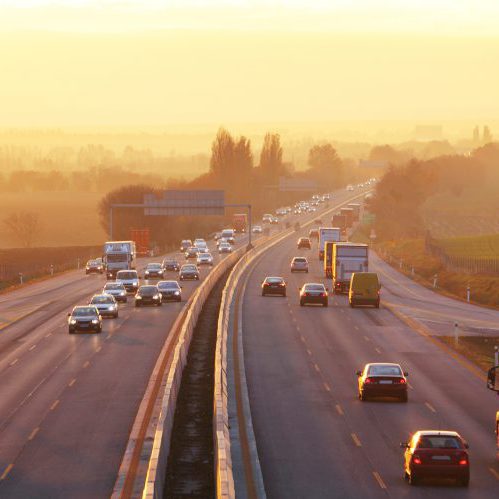Transportation
Americans Spend Less on Transportation Than 3 Decades Ago

Published:
Last Updated:

Planes, trains and automobiles have all been major components of American life and how everyone gets around. Transportation is huge in everyday life for most Americans, whether it’s making the commute to and from work, or taking a trip to see family or friends, near and far. It’s no doubt that we spend a lot of money on transportation, but these costs have been surprisingly shrinking over the past three decades.
The average cost of a new vehicle today is well over $30,000, and the price of gasoline has more than doubled in the past 30 years. Despite these increases, Americans now spend less on transportation than they did back when the first George Bush was in the White House.
According to a study from the University of Michigan, in 1989 American households averaged 18.9% of all expenditures on transportation (vehicle purchases, gasoline, other related expenses). But in 2016, transportation expenses had fallen to 15.8% of all personal expenditures.
These researchers found that the absolute expenditures for transportation, adjusted for inflation, dropped by 11.3% — from $5,268 in 1989 to $4,675 in 2016.
Specifically, vehicle purchases made up 6.3% of all expenditures last year, while gasoline and motor oil represented an additional 3.3% — down from 8.4% and 3.5%, respectively, in 1989.
While transportation costs accounted for the second-largest household budget category behind housing expenses in both 1989 and 2016, transportation expenditures relative to housing costs declined from 61.6% in 1989 to 47.9% last year.
Separately, the researchers found that total transportation expenditures in 2016 for the lowest quintile of income were proportionally higher than for the highest quintile (15% versus 14.4%).
Additionally, the study found that transportation expenditures for households in the lowest quintile of income were lower than food costs for both 1989 and 2016. In contrast, those in the highest quintile of income spent more on transportation than food in both years.
The thought of burdening your family with a financial disaster is most Americans’ nightmare. However, recent studies show that over 100 million Americans still don’t have proper life insurance in the event they pass away.
Life insurance can bring peace of mind – ensuring your loved ones are safeguarded against unforeseen expenses and debts. With premiums often lower than expected and a variety of plans tailored to different life stages and health conditions, securing a policy is more accessible than ever.
A quick, no-obligation quote can provide valuable insight into what’s available and what might best suit your family’s needs. Life insurance is a simple step you can take today to help secure peace of mind for your loved ones tomorrow.
Click here to learn how to get a quote in just a few minutes.
Thank you for reading! Have some feedback for us?
Contact the 24/7 Wall St. editorial team.